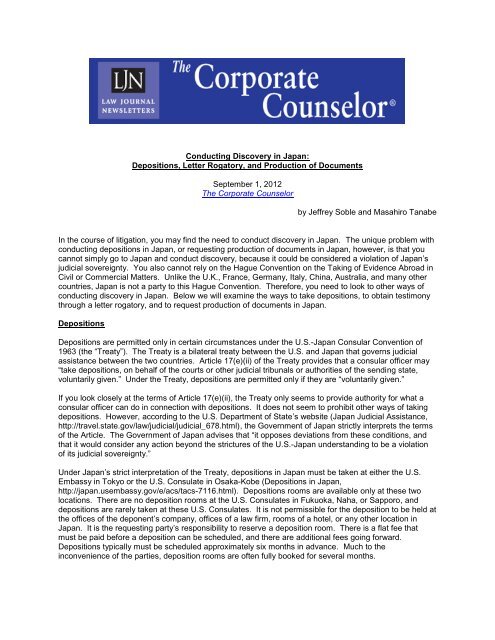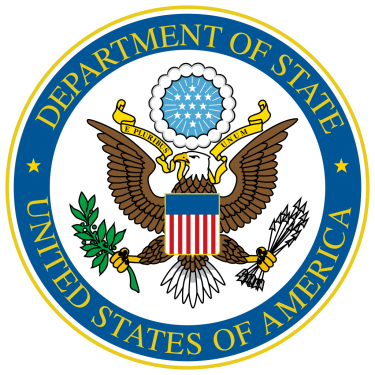The Role of Letters Rogatory in Criminal Investigations Across Borders
The Role of Letters Rogatory in Criminal Investigations Across Borders
Blog Article
Letters Rogatory Explained: Facilitating Legal Participation Between Countries

Meaning of Letters Rogatory
Letters rogatory are official requests made by a court in one territory to a court in an additional jurisdiction, seeking help in acquiring proof or testimony for a lawful case. This step-by-step device is necessary in the context of international legislation, where lawful systems may differ, and cross-border participation is required. Letters rogatory promote the gathering of information that might be essential for settling instances, especially in instances entailing complicated multinational issues.
Normally, these demands develop in civil, criminal, or administrative issues where a celebration calls for evidence that is located outside the territory of the asking for court. The letters offer as a means to guarantee that the concepts of due process are supported, allowing courts to gain access to proof that might otherwise remain unattainable because of geographic or legal barriers.
Making use of letters rogatory is regulated by worldwide treaties, bilateral contracts, or residential regulations, which mark the procedures and obligations of the courts involved. It is essential to keep in mind that the implementation of such demands is not ensured; they depend upon the legislations and techniques of the jurisdiction receiving the letter. Thus, letters rogatory are a critical tool for cultivating lawful collaboration and guaranteeing justice across borders.
The Refine of Issuing Letters Rogatory
Issuing letters rogatory includes a structured procedure that makes sure compliance with both residential and global lawful criteria. Originally, the asking for party, usually a court or legal authority, drafts an official demand outlining the nature of the assistance sought, the evidence or information required, and the legal basis for the demand. This document has to be exact to promote understanding by the international jurisdiction.

The next step includes transferring the letters rogatory to the assigned foreign authority. This is commonly done with diplomatic networks or international legal aid structures, making certain that the request is gotten and acknowledged by the foreign court. The foreign court after that refines the request according to its own legal treatments, inevitably replying to the asking for event with the desired info or evidence, thus facilitating worldwide legal participation.
Relevance in International Legislation
The importance of letters rogatory in global law can not be overemphasized, as they function as an important system for judicial participation throughout borders. These official ask for support in lawful issues allow courts in one territory to seek info, evidence, or the visibility of witnesses from one more helpful resources territory, consequently facilitating the administration of justice in transnational situations.
Letters rogatory are particularly crucial in the context of globalization, where legal disputes often cover numerous nations. They enable the collection of evidence that could otherwise be unattainable, making sure that legal procedures are informed and fair. By promoting cooperation between judicial systems, letters rogatory aid support the regulation of law and promote common respect among countries.
Moreover, using letters rogatory demonstrates a dedication to global norms and principles of teamwork, showing the interconnected nature of modern legal methods. It highlights the value of sticking to well established treatments and treaties, such as the Hague Convention, which offers a framework for these requests - Letters rogatory. Eventually, letters rogatory boost the efficiency of legal procedures, making sure that justice is not impeded by geographical borders
Challenges and Limitations
In spite of their relevance, letters rogatory face several challenges and restrictions that can hamper their performance. One primary problem is the differing lawful structures and treatments across territories, which can cause misconceptions and hold-ups in the implementation of demands. Various nations might have distinctive requirements for the validity of letters rogatory, complicating the procedure better.
Furthermore, the commonly protracted nature of worldwide legal teamwork can impede prompt access to evidence or witnesses. This delay may detrimentally influence lawful procedures or recurring investigations, specifically in instances calling for immediate action. The absence of sources and training in some jurisdictions can result in inadequate handling of demands, leading to incomplete or insufficient feedbacks.
Social differences and varying mindsets towards lawful processes can also pose significant obstacles. As an example, countries with much less formal legal systems may battle to abide by the procedural roughness anticipated in letters rogatory. Last but not least, political stress in between nations can affect the readiness to carry out requests, resulting in an absence of participation and reducing the utility of this device in worldwide legislation. These challenges require continuous dialogue and reform to improve the efficiency of letters rogatory in legal cooperation.
Study and Instances

Alternatively, obstacles can occur, as seen in a situation involving a European country looking for proof in an ongoing criminal matter from a non-EU country - Letters rogatory. The process was delayed because of governmental obstacles and varying lawful standards, eventually preventing the examination
These examples illustrate that while letters rogatory can assist in global collaboration and speed up lawful process, they also highlight the requirement for clear interaction and understanding of lawful structures between nations. Such study highlight the value of refining this tool to directory improve effectiveness and performance in international lawful issues.
Conclusion
In recap, letters rogatory offer as an important mechanism for assisting in legal cooperation in between nations, guaranteeing the collection of proof and testimony throughout jurisdictions. Their importance in global regulation can not be overstated, as they promote due process and improve the efficiency of cross-border lawful procedures.
Letters rogatory are official demands made by a court in one territory to a court in another territory, seeking help in acquiring evidence or statement for a legal case. The requesting party, generally a court or lawful authority, prepares an official request describing the nature of the help sought, the proof or information required, and the legal basis for the demand. The foreign Discover More court then refines the demand according to its own legal treatments, ultimately responding to the requesting event with the sought-after details or evidence, therefore helping with global legal participation.
Additionally, the usage of letters rogatory demonstrates a dedication to international norms and concepts of teamwork, mirroring the interconnected nature of contemporary lawful techniques.International lawful cooperation with letters rogatory is not without its real-world effects, as illustrated by different instance studies that highlight both challenges and successes.
Report this page